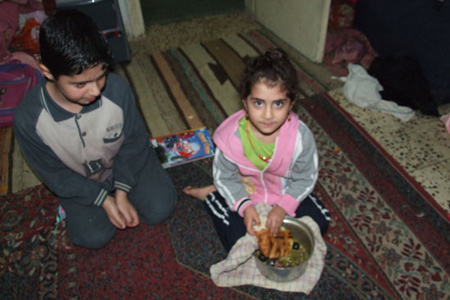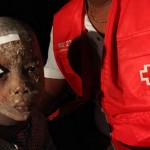Prior to 2006, strict immigration policies didn’t allow refugees fleeing the violence in Iraq to enter the United States. In 2007, a more lenient “open door” policy was implemented, allowing thousands of Iraqis –15,000 in 2009 alone– to settle in the Detroit area. Now, local Arab community groups that stepped up to help the refugees say they are overwhelmed by the burden of taking care of the new arrivals.
In a recent interview on WDET’s Detroit Today, Joseph Kassab, executive director of the Chaldean Federation of America, and Abdallah Boumediene, from the Arab Community Center for Economic and Social Services, acknowledged that the Arab community in Michigan can’t deal with the crisis by itself.
With little to no support from the local, state or federal governments, Detroit’s Middle Eastern community has to deal with providing thousands of displaced Iraqis with housing, health care, education, transportation and jobs.
Seven years after the United States declared war on Iraq, nearly two million Iraqis have claimed refugee status. Refugees have been evicted or forced to leave Iraq because of religious and ethnic persecution. As displaced Iraqis struggled to make their way into other Middle Eastern countries such as Syria and Jordan, a large influx –roughly 33,000– have recently arrived in the United States.
According to a report by Refugees International, the Iraqi refugee situation is “one of the largest humanitarian and displacement crises in the world.”
Because Michigan is home to the largest Middle Eastern community in the United States, various social service agencies, including the Chaldean Federation, campaigned to bring the refugees to Metro Detroit. Local Arab leaders used family unification as the main argument in their request to the State Department to bring them to Michigan. Arab leaders wanted the refugees to reconnect with family members, distant relatives, friends and other members of the community.
Kassab has been working directly with refugees and says there is also the matter of family separation.
“There are members of one family on four different continents,” he said.
Local non-profits are not only dealing with resettling the newly arrived, they’re also trying to cope with serious mental health issues suffered by many refugees. Iraqis often have had family members kidnapped, tortured or killed. Families experience depression, loneliness and the post-traumatic stress caused by living in a war-torn country.
“We deal with tragic situations and stories of people who have gone through horrendous experiences,” Boumediene said.
The agencies say they are committed to fully supporting the newly arrived, despite what they say is a lack of support from the government.
“We don’t want to re-victimize these people,” Kassab said. “These people are victims of torture, victims of persecution, victims of failed policies and therefore they should be helped.”





